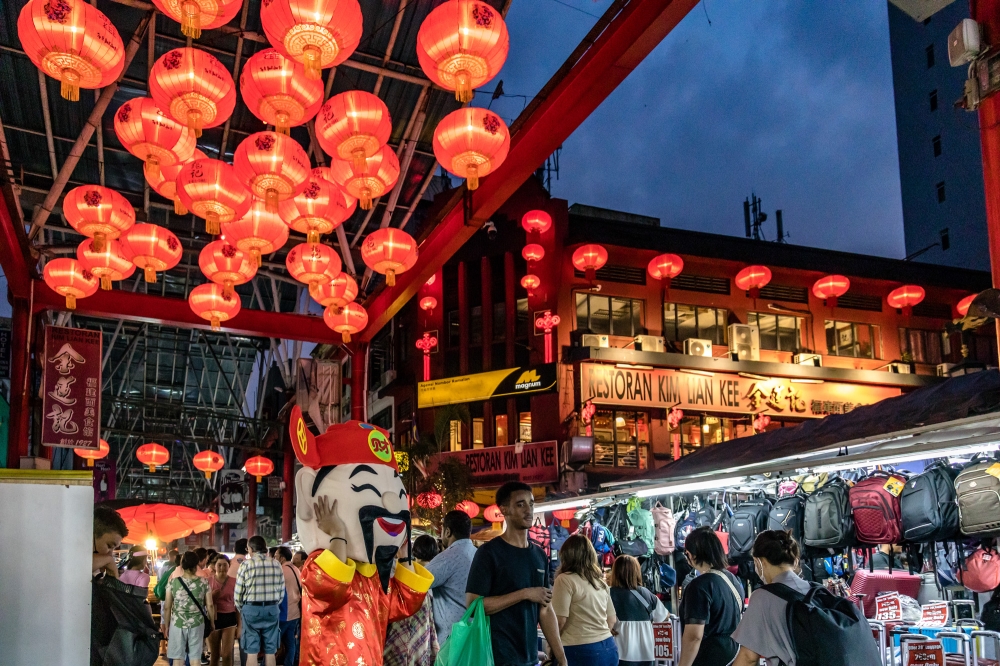KUALA LUMPUR, Jan 22 — It really doesn’t feel much like Chinese New Year if there aren’t long queues outside shops trading their wares in Kuala Lumpur’s Chinatown.
During this festive season, it may not be the best time to head into town if one is not fond of crowds. Nevertheless, it is still the best moment to get yourself hyped for the 15-day Chinese New Year celebration.
For bak kwa franchise Oloiya, owner Ceil Chok Siew Koon said that such a sight is most welcomed every year as the festive season approaches.
“Even though we’re available online now, our regulars still come by to the shop to get their bak kwa, just to feel the Chinese Near Year atmosphere.
“They actually in a way enjoy getting into a queue. They don’t mind waiting because it simply means that they get to catch up with friends and absorb the vibrancy of Petaling Street during the festive season,” Ceil told Malay Mail when met at its franchise headquarters in Jalan Hang Lekir here.
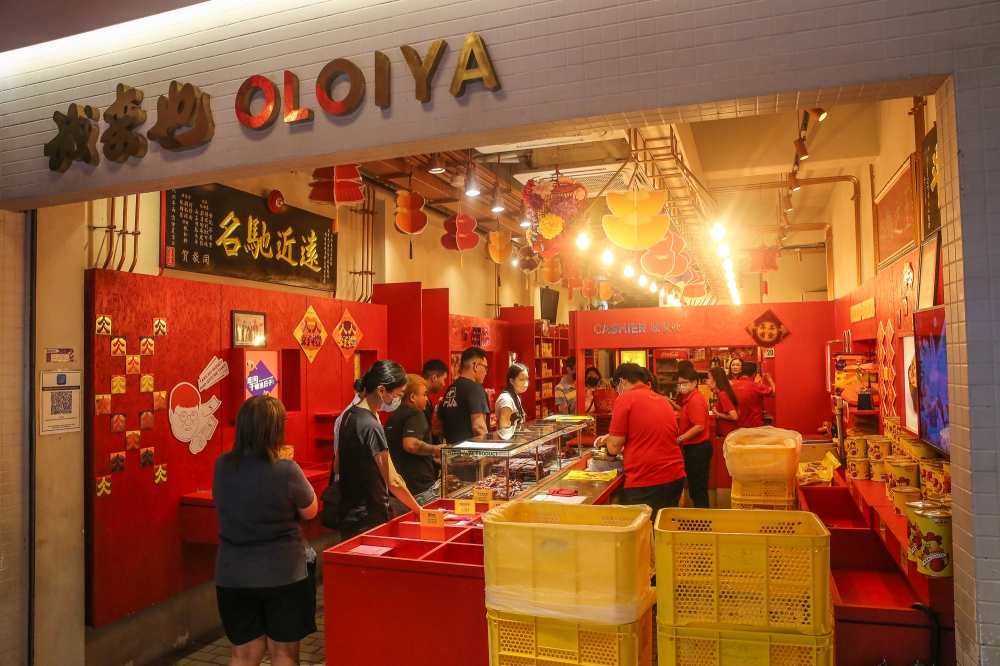
Bak kwa, also known as rougan, is a type of preserved salty-sweet dried meat or jerky typically eaten during Chinese New Year.
The process of making this meat is tedious and is usually sold at a slightly higher price compared to other festivity snacks.
“Even though the economy isn’t doing so well now, since our last price adjustment, we haven’t had to increase the price of our bak kwa.
“But that said, we’ve had nine times price adjustment since last year January. At the end of the day, we want our customers to be able to enjoy this traditional snack so we are trying our level best to keep it as affordable as possible,” added Chok.
Chinatown was originally centred on Jalan Tun HS Lee, but today, the area around Petaling Street is known for its diverse varieties of food, fashion, grocery and heritage landmarks including Taoist Guan Di temple and the 19th-century Sri Mahamriammann Hindu temple.
Petaling Street or fondly called chee cheong kai in Cantonese (for “starch factory street”) originated during the late Yap Ah Loy’s time when the Kapitan Cina convinced tin miners to remain in Kuala Lumpur while the Malays in the surrounding districts grew rice and garden products, after the civil war. He then opened a tapioca mill on Petaling Street.
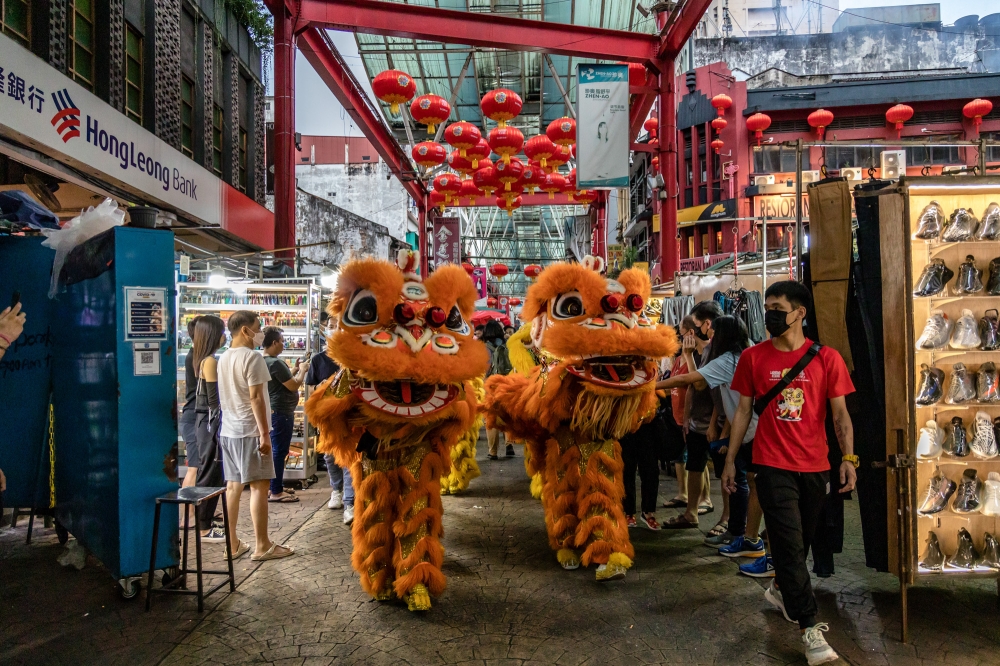
Petaling Street is accessible via the Central Market and ends at Bulatan Merdeka. Popular streets in the vicinity include Jalan Hang Lekir — which intersects Petaling Street — while Jalan Tun HS Lee and Jalan Sultan are parallel streets.
Between these main streets is where the popular Lorong Karat — also called Pasar Karat, which offers vintage goods — is located.
Chok also suggested that perhaps the festive season had come a little too early in 2023, as 2022 had barely ended and the Gregorian New Year still has not actually sunk in for most.
“I only noticed the crowd building starting last Saturday and it’s been a steady stream since then.
“I think it’s likely that since December has just only gone by, many have spent a lot for Christmas, and also it’s too early and some have not received their bonus from last year, so spending power could be slightly low this time around,” she said.
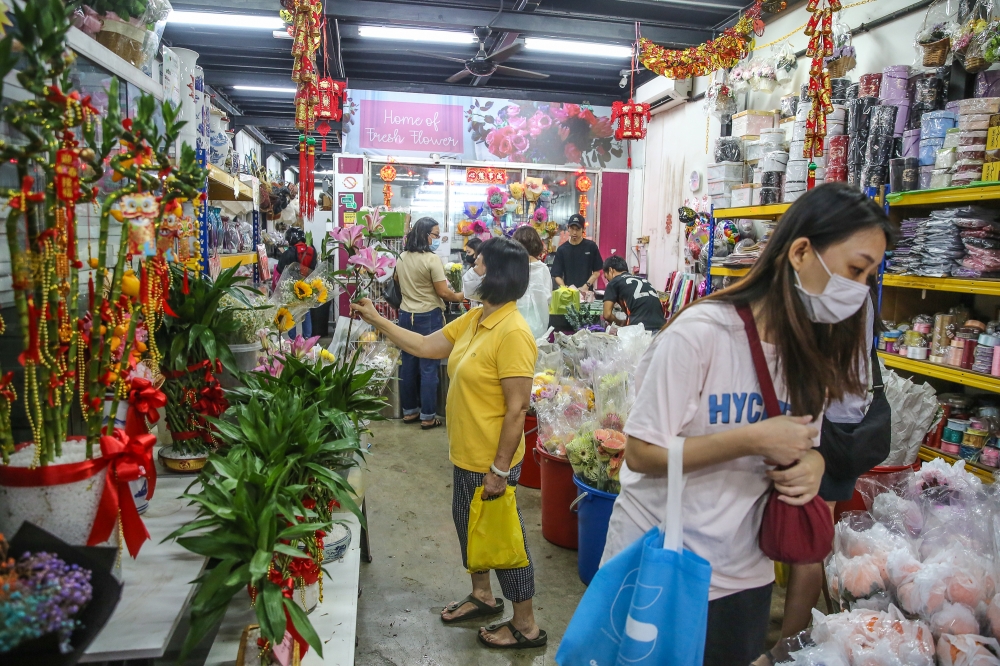
At florist Floralife Central Sdn Bhd, Joan Carolinecia Masliu said although she feels the festive mood building up, it is a little quieter than last year, agreeing that the Chinese New Year came too fast.
Otherwise, she said flowers would be sold out usually even a week before Chinese New Year.
“Now we’re just a few days away, there’s still a lot of flowers left.
“But it’s better compared to two weeks ago, I hope it’ll pick up at the very last minute,” she said when met at the shop here on Jalan Tun HS Lee.
At Chai Huat Hin Trading, an oriental grocery shop on the same street, shoppers were abuzz picking out cooking ingredients to prepare for celebratory meals throughout the Chinese New Year period.
Chief of e-commerce business development, Lana Ng said despite the 10 to 30 per cent increase in price, she was thankful that the various source countries help keep the affordability of their goods sold at the oriental grocery shop.
“Even when certain things increased price globally, we have a few suppliers from different countries, so that helped cover some costs.
“Chinese New Year is a once-a-year event, those who celebrate it are willing to spend. But even so, we constantly ensure that our prices are reasonable,” Ng said.
She added that business at the physical store has improved after it launched its online shopping platform several years ago.
“Our online platform has actually drawn more people to the shop, especially the younger generation shoppers. After they browsed the items they see online, it sparked interest in them to come here in person to look at the items they want to purchase.
“We are very happy with our decision to launch our online platform,” Ng added.
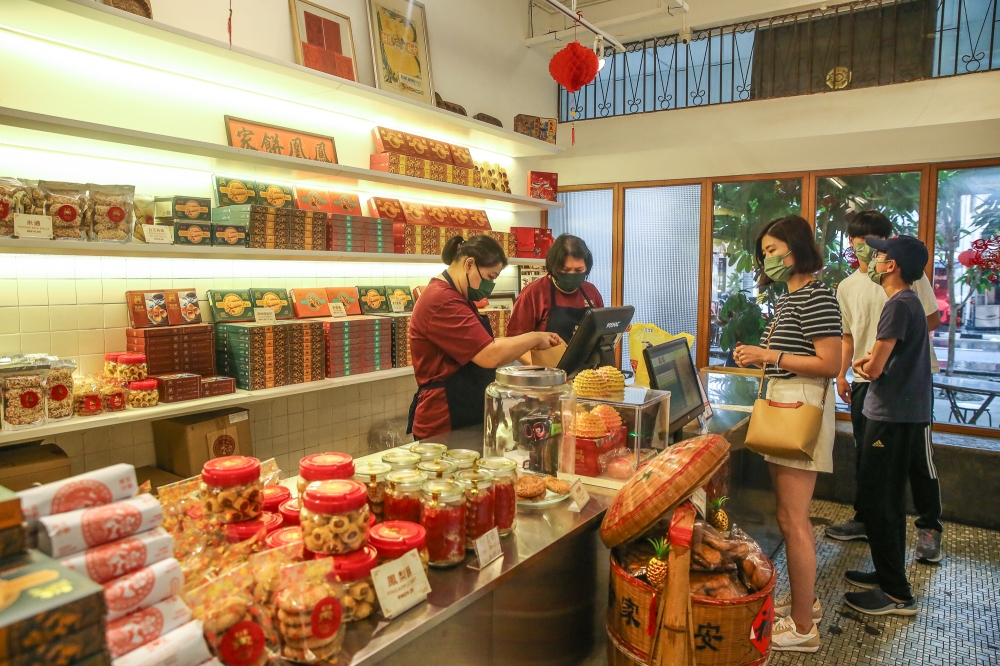
Simon Ang, the director of another favourite of Chinatown patrons, Fung Wong Biscuit, said business is picking up now despite what may seem like a quieter Chinese New Year.
Ang said despite the price hike on ingredients, the store managed to overcome the hurdle just before the festive period arrived.
“We struggle to source ingredients for a while — flour and eggs — but thankfully that didn’t last for long.
“Overall our business is still manageable but we are anticipating a drop in sales after the Chinese New Year.
“We have anticipated this, so we hope it won’t hit us too severely,” Ang said when met at the shop, adding that there were concerns about manpower after the business had expanded since they shifted to Jalan Sultan, and incorporated a cafe to its shop.
The Chinese and Lunar New Year is celebrated today in Malaysia, with the public holiday continuing until Tuesday.
















